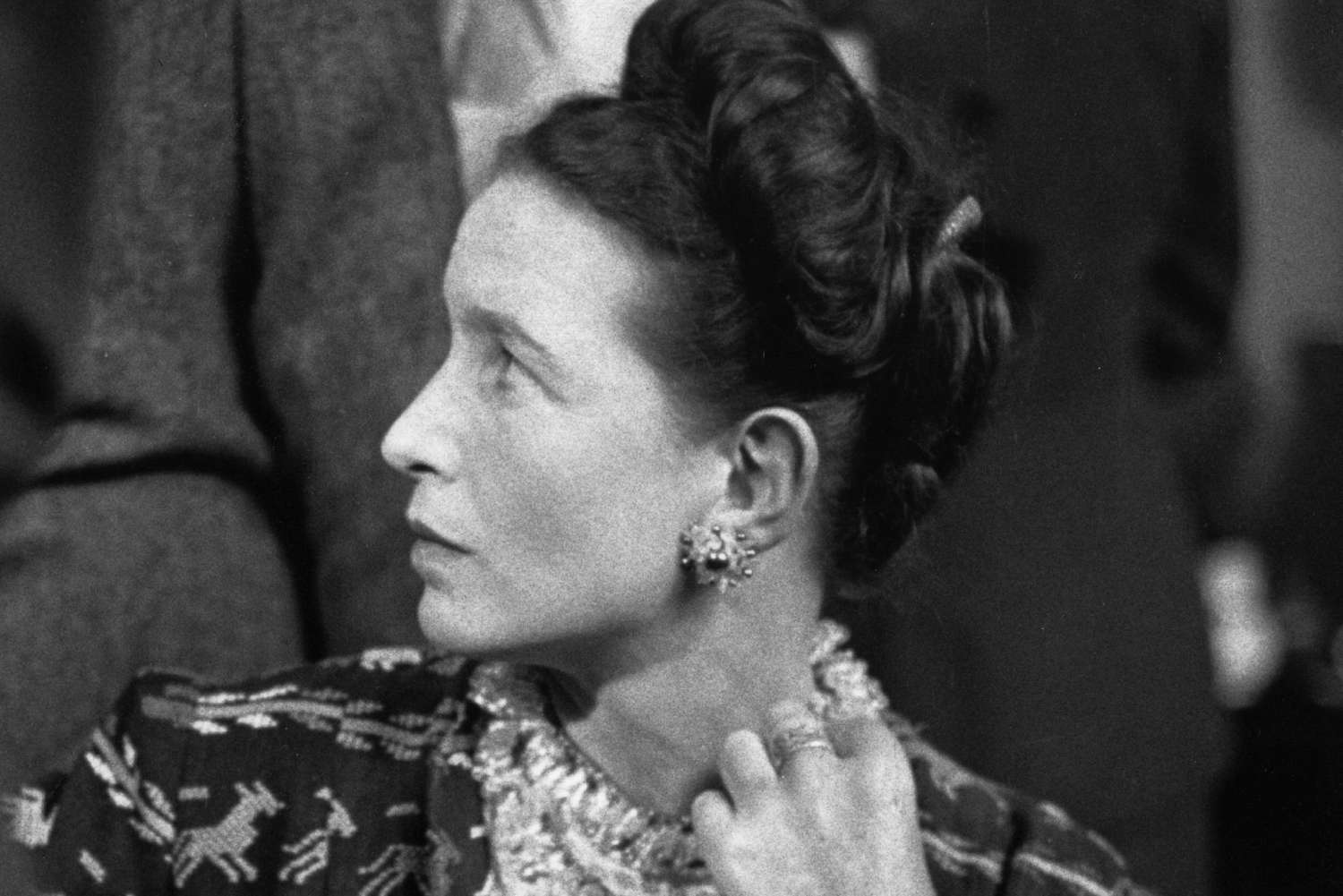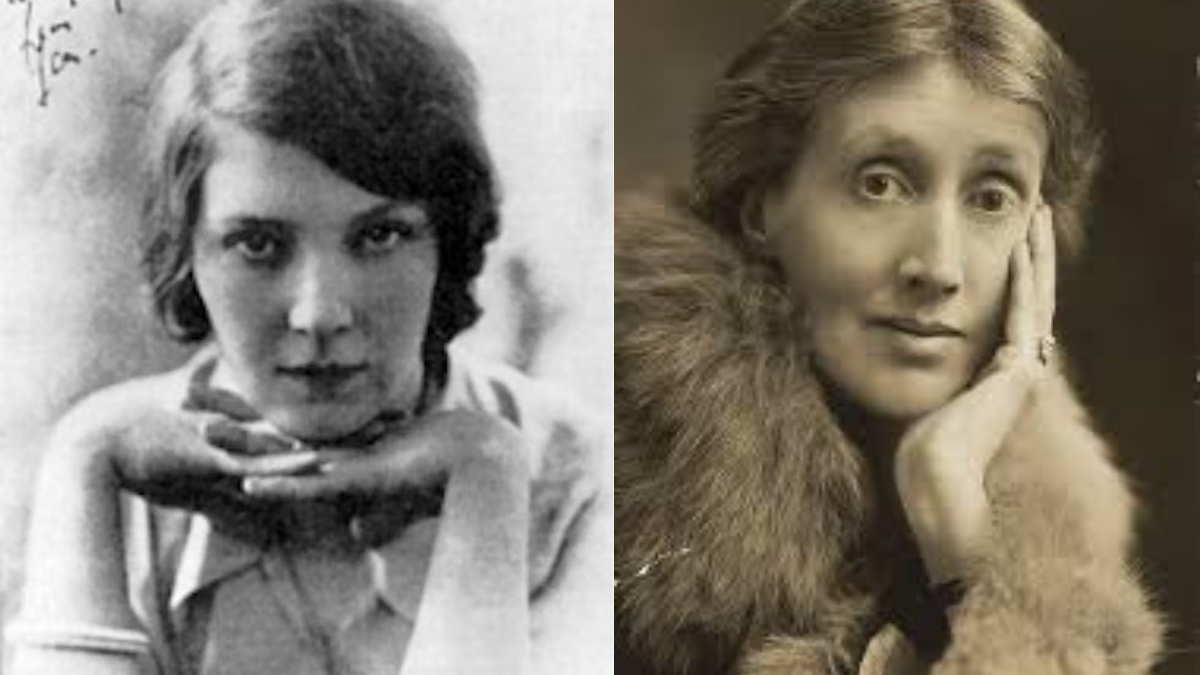Simone de Beauvoir is a French feminist philosopher, writer, and activist who pioneered women’s advancement and independence throughout her career. In 1926, she qualified for the most prestigious curriculum of philosophy at the institute of La Sorbonne. Soon she started engaging with existing philosophical theories and started challenging them with her own ideas. At the time, the curriculum was deeply influenced by Plato’s philosophy that the world that we live in is a mere reflection of the real world. Beauvoir contests this idea and tries to ground her focus more on the material world. She was more interested in navigating the physical world through earthly, sensual experiences.
Simone de Beauvoir also advocated for structural and institutional change in society. On 5 April 1971, Manifesto of the 343 was published which was signed by 343 women who had faced issues regarding birth control and were affected by the lack of their reproductive rights. In the petition, Simone paves the path for effective legal change that would grant women reproductive rights and access to birth control. She also stressed the need for quality education among women which would uplift them and allow them to claim their position as equal to men.
Soon she came in contact with philosopher Jean-Paul Sartre and developed an intellectual and romantic relationship. They both became deeply steeped in developing existentialism as a school of thought. Despite having been brought up as a Catholic, she disowned the Catholic belief of predestination that preaches that it is already decided whether a person would go to hell or heaven even before they are born. Beauvoir maintained the existentialist belief in individual freedom and absolute free will.
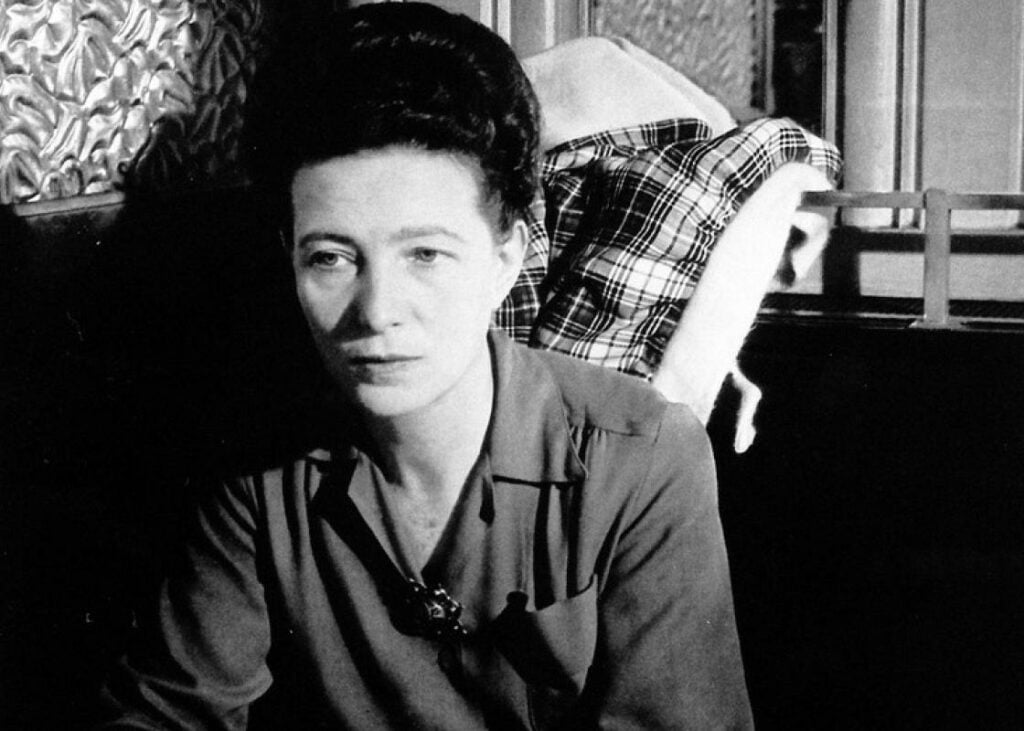
In 1947, her book The Ethics of Ambiguity was published which foregrounds her existentialist school of thought. She believed that every individual had free will to choose their destiny which sometimes presented itself as a burden or a gift, with full recurring responsibility on the individual in question.
Her ideas differed from Jean-Paul Sartre’s based on collectivism. While Sartre placed importance on the individual existing as a singular entity in control of his own free will, Beauvoir differed with the idea that an individual exists both as a singular entity and also as a part of a collective or an aggregate.
Soon she ties her philosophy on existentialism with feminist ideology in her 1949 seminal book The Second Sex. In her book, she discusses the cultural and social inequality that women face and how they are always situated as an extension of men’s subjectivity and their existential activity on earth.
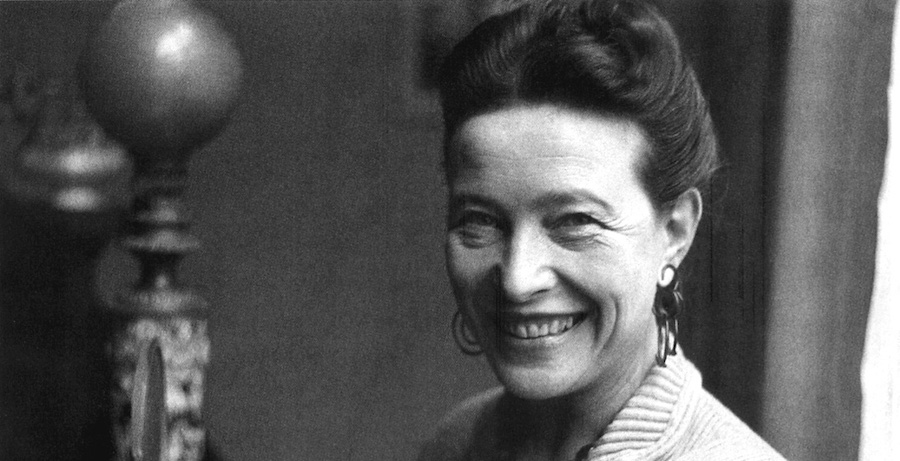
She points out how women often lose themselves in their endeavour to meet the idealised standard of femininity through the sanctity of marriage and motherhood. While men find themselves free to pursue their free will, women keep berating themselves for failing to meet the impossible standards that society set for them. Thus, they become the ‘other’- the second sex in society. In the book, she passionately strives to dismantle “the feminine myth”.
Book II opens with the oft-quoted and popular statement: “One is not born, but rather, becomes a woman.” This de-essentialises womanhood and femininity as a biological concept and grounds it into the realms of a socio-cultural framework. For Beauvoir, philosophy and feminist activism are intrinsically connected. She highlights how women are contained within various social, economic, and cultural imperatives of femininity and how breaking those ideologies would ultimately allow them liberation. Her feminist philosophy becomes the trailblazer of Second Wave feminism and allows many critics to build on her works into the discipline of both gender and sexuality studies.
Also read: Book Review: The Second Sex By Simone De Beauvoir
However, many critics have commented that Beauvoir’s work lacks intersectionality in realms of racial and economic disparity. She fails to take into account the difference in experience that women belonging to different racial and economic backgrounds face and how it shapes their politics on a different paradigm.
Beauvoir’s fictional works feature female protagonists that are flawed and often exist in contradiction to the feminist ideals that Beauvoir herself upholds. It is perhaps her way of showing the world that women must be allowed to fail and fall short in their attempts to unshackle themselves from the grips of century-old patriarchy. Feminist ideals must not become another way of making women feel inadequate and inferior about their place in society, but rather, it should inspire them to aim for more.
Simone de Beauvoir also advocated for structural and institutional change in society. On 5 April 1971, Manifesto of the 343 was published which was signed by 343 women who had faced issues regarding birth control and were affected by the lack of their reproductive rights. In the petition, Simone paves the path for effective legal change that would grant women reproductive rights and access to birth control. She also stressed the need for quality education among women which would uplift them and allow them to claim their position as equal to men. Her activism had a far-reaching influence on women’s liberation in France.
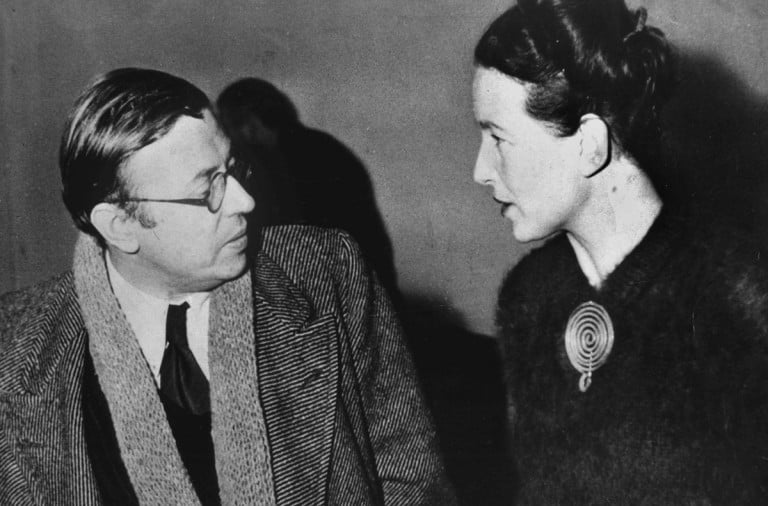
Despite her many accomplishments, Simone de Beauvoir has been often targeted by the masses for leading an unconventional lifestyle. Her romantic relationship with Jean-Paul Sartre did not confine her within the bounds of monogamous conjugality. They both had various other romantic or sexual relationships on the side which at the time was not easily accepted in society. In recent years, her image has been further tarnished with the release of some of her private letters that reveal some of her most scandalous relationships. She lost her job at the university after she was accused of sexual misconduct by two of her students. Since then she proceeded to make her living from her writings.
Also read: Analysing Television Serials Through The Feminist Lens Of Simone De Beauvoir
Beauvoir’s fictional works feature female protagonists that are flawed and often exist in contradiction to the feminist ideals that Beauvoir herself upholds. It is perhaps her way of showing the world that women must be allowed to fail and fall short in their attempts to unshackle themselves from the grips of century-old patriarchy. Feminist ideals must not become another way of making women feel inadequate and inferior about their place in society, but rather, it should inspire them to aim for more.
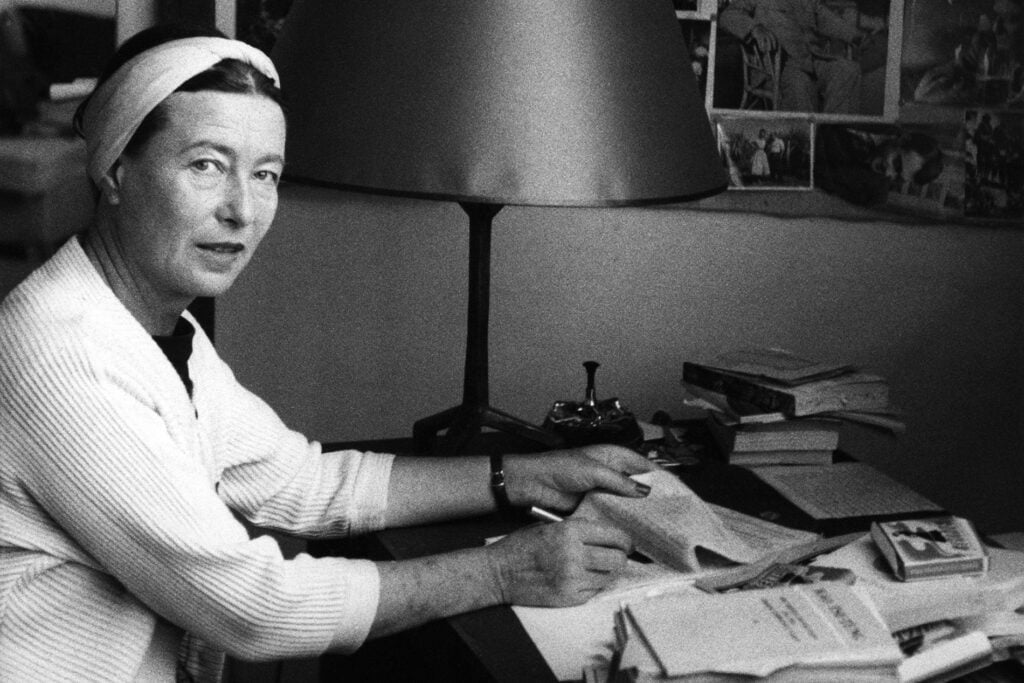
In our engagement with Beauvoir, her academic work and activism often get de-centered by her relationship with Sartre and speculations about her other romantic and sexual connections.
Women’s life and achievements are often overridden by their private life and personal affairs. Perhaps, it is time that we look back on the life and works of Simone de Beauvoir with a critical approach, appreciating her activism and academic contribution while recognising that as a human being, she was fully capable of errors and falling short of her ideals.
About the author(s)
Debabratee (she/they) is a student of English Literature at Jadavpur University. When they are not found reading or writing, they are found running after their pet dog and cuddling with him. They are avid binge-watcher of all kinds of OTT content and like to dissect and analyse them in their free time.
